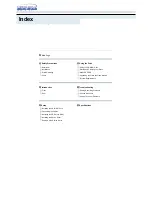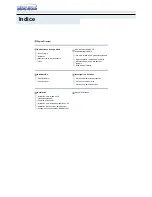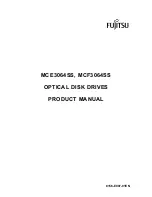
LVD-EOTKN047U-EN REV A
Effective: 2020-10-05
1
—
Technical Note 047
Floating point control
How to setup floating point control
The design of some air handling equipment uses a pressure control switch, such as a Dwyer® Photohelic, to control pressure by varying
mechanical parts of the air handler. The air handling equipment can be found on a wide range of applications, such as an air handler in
a commercial high-rise building, or a paint booth at an auto body repair shop. In addition to air handling applications, these types of
switches are also used on pumping systems to control pressure.
The 580 series drive can integrate easily with a pressure control switch in a retrofit or new application. The 580 series is made up of the
ACH580, ACQ580 and ACS580.
Fixed speed applications (without a drive) have the pressure control switch vary mechanical devices to control system pressure. With
the addition of a drive, the pressure control switch no longer varies mechanical devices to control system pressure, and instead the
switch is wired directly to a drive. The drive controls the speed of the motor to control system pressure. Pressure control switches are
an electro-mechanical device that allows for a setpoint to be set, usually with knobs on the front of the controller. The device will
mechanically monitor the pressure. As the pressure increases or decreases, switches (usually Form-C relays) within the device will
toggle on and off. This type of control in the HVAC industry is sometimes called
floating point control
. The toggling on/off of the
relays can be used to control the speed of a drive.
Floating point control is the term used in the HVAC industry, but some industries use the term
motor potentiometer
or
MOP
. Drive
documentation may reference one or both terms.
The 580 drive can easily be setup to operate from a Photohelic® or equivalent pressure control switch. The following procedure
assumes an ACH580 drive configured with Primary Settings.
Step 1: Set the
Reference from
to
Floating point
by navigating to:
Primary Settings > Start, stop, reference > Primary auto control location > Reference from: Floating point
Step 2: There are three different configuration options that can be selected. Select the control configuration that best fits the
application.
Primary Settings > Start, stop, reference > Primary auto control location > Floating point control > Configuration
A description of each configuration is described below:
Init at power-up
o
The drive will always start at the same initial value reference point when a new run command is
given. This setting always provides a consistent starting speed.
o
If the drive were cycled from AUTO, to HAND, and then back to AUTO mode, the drive will ramp
to the last frequency it was running at in AUTO mode.
o
If this configuration is chosen, then set the
Initial value
by navigating to:
Primary Settings > Start, stop, reference > Primary auto control location > Floating point control >
Initial value
o
The benefit of this configuration is upon every fresh run command in AUTO mode the starting
reference is a known constant.




















